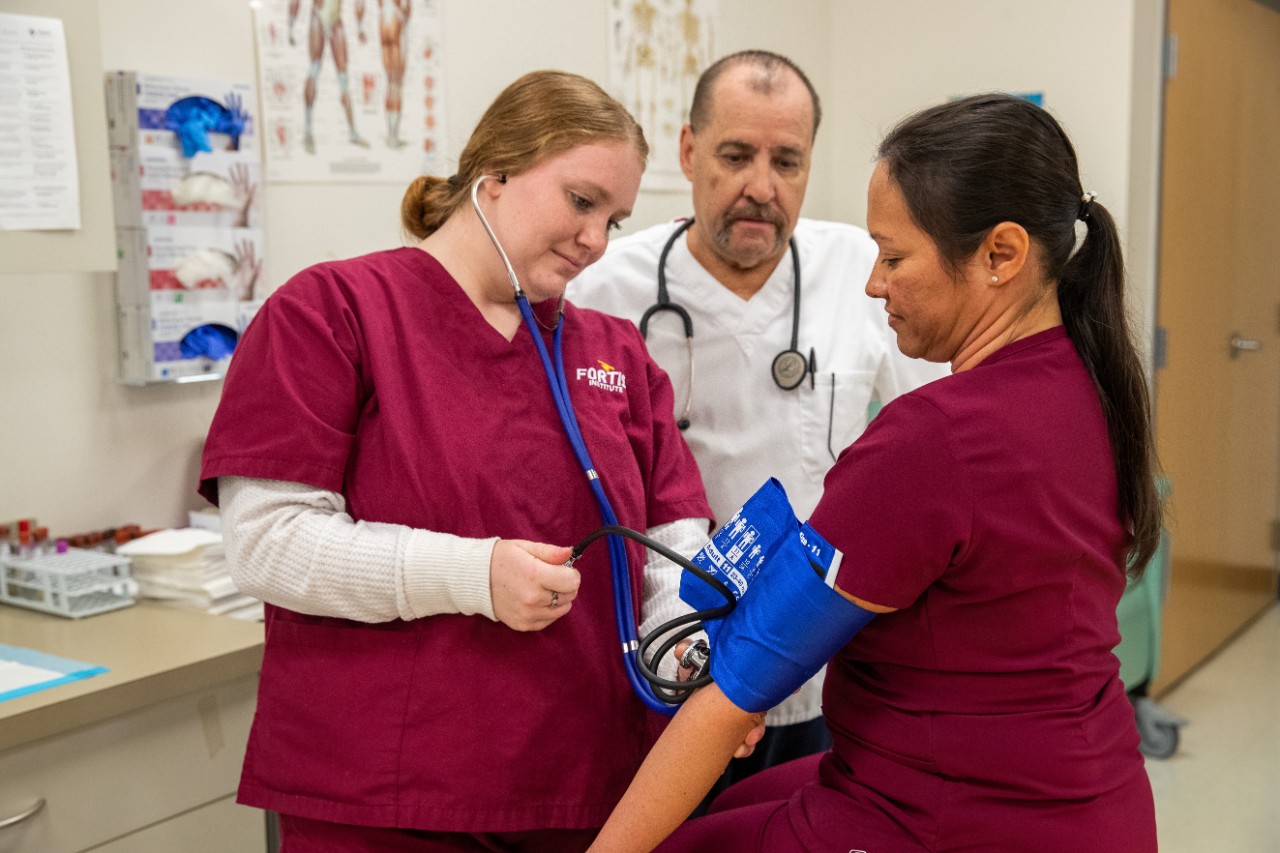Medical assistants provide essential services to private physician practices, hospitals, and other medical facilities, and it’s a rapidly growing career. Between now and 2031, employment of medical assistants nationwide is poised to grow by 16% over the next 10 years which is much faster than the average for all occupations, according to the Bureau of Labor Statistics.
Physicians rely on the collaborative skills of their medical assistants to interface with patients and to provide them with the necessary and required care. What is a medical assistant? These professionals are the backbone of any smooth-running office. The scope of duties performed by medical assistants varies by state licensing laws, but here’s how medical assistants typically help doctors.
Administrative Duties
Medical assistants wear a variety of hats, and an important part of the job is the contribution they make in managing the administrative side of an office or hospital department. In a private practice setting, you’ll likely schedule appointments, take patient insurance information, bill insurance, handle other paperwork, and handle patient phone calls. You might also collect patient history and update patient records. All of these tasks allow the physician to focus on the patient with accurate and up-to-date information.
Working in a hospital means similar administrative duties. Depending on which department you work in, you could also prepare exam rooms, set up instruments, and refill supplies, which help the physician handle their side of the patient interaction.
Clinical Care
Medical assistants aren’t nurses, so the clinical care you provide is limited, but you might handle tasks like taking patient health history, taking basic vital signs, giving vaccinations, and preparing blood samples for testing. Part of your job is to put patients at ease and take questions. As you relay patient questions and concerns to the physician, you may be providing important insight about that person that helps the physician provide more targeted care.
In a hospital, the clinical tasks you might handle will be similar to a physician’s office, but could also include preparing a patient for a procedure, making a family comfortable, and collecting samples. You may become specialized by working in a particular area, such as X-ray, surgical, maternity, or administrative. In any of these areas, you’ll partner with physicians, nurse practitioners and nurses as they provide care.
Effective medical assistants are detail-oriented self-starters who provide critical support services to the physicians they work with. Are you interested in learning more about this important and growing field? Fortis offers programs in medical assisting and medical assisting with basic X-ray skills. Programs will vary by campus. Click here for more information or call Fortis today at (855) 436-7847 and speak to one of our career advisors.


